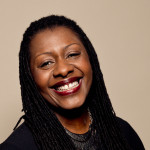The digital ad industry seems to be waking up to the need to take action to promote a more equal workplace for people of all gender, with the topic frequently addressed at industry events and in trade publications. With the problem now acknowledged by most in the industry, what proactive steps can be taken to create a more inclusive environment for women working in TV and video advertising? VAN asked senior figures from across the industry to suggest positive actions they’d like to see taken.
 Lindsey Clay, CEO, Thinkbox
Lindsey Clay, CEO, Thinkbox
The recent Hampton-Alexander Review revealing the excuses given by CEOs as to why there aren’t more women on the boards of top 350 companies read like a comedy sketch . “They don’t fit in”; “all the good women have already been snapped up”; “they don’t want the hassle”; and “we’ve already got one”. Laughable yes, but I’ve heard many of the same excuses in our industry.
So, what to do? Well, the following for starters. All leaders should: do the Harvard unconscious bias test and then preferably some training; commit to gender balanced shortlists and interview panels for every senior job; publish a transparent action plan for improvement following publication of gender pay gap figures; implement mentoring and coaching programmes for high potential women and reverse mentoring for senior men; commit to equal representation of women on screen, behind screen, on stage, in the media, and, most importantly, in creative departments where the problem is greatest of all. And companies could do a lot worse than signing up to the Creative Equals charter.
 Tom Jenen, Co-Founder & Director, WomenPresent
Tom Jenen, Co-Founder & Director, WomenPresent
Overt sexism is waning, thankfully. The challenge now is to see the quiet but persistent bias that’s now built in to our behaviours and business processes and actively counter it. We need to see sexism not as a women’s problem, but a problem for our business and our industry, as it keeps great ideas, leadership and talent from maximum contribution. Men need to challenge other men when we observe interrupting, co-opting and patronising behaviours that reduce or minimise women’s contributions at work. Men have title inflation compared to women, let’s look at expertise instead of time on the clock. We judge female executives’ performance more harshly, never more so than in public speaking – let’s think about our responses carefully and focus on results. And lastly, let’s examine our childcare policies for employees, and train our executives to reduce the pressures for both sexes.
 Ellie Edwards-Scott, Co-Founder & Digital Consultant, The Advisory Collective
Ellie Edwards-Scott, Co-Founder & Digital Consultant, The Advisory Collective
I think conference/event organisers need to do more than just open their ‘little black books’ when looking for speakers at events to ensure that there is a balanced Male/Female panel. Yes it might take a bit more effort but there are a lot of senior women who simply don’t get asked to speak at events.
As an example I’m often asked to speak about diversity, which whilst I’m happy to do so as I’ve think we’ve got a long way to go to address this. With over 15 years experience in AdTech it’s not the only topic that I am knowledgeable about!
When reaching out to companies you could ask their marketing departments if they could suggest a female speaker.
If you have a speaker on your panel ask if she can suggest any other females in the industry that may like to speak.
Put posts out on your social channels and LinkedIn requesting female speaker submissions. There are women out there, who are more than qualified to do this you just need look a bit harder to find them!
 Joanna Burton, VP European Strategy, SpotX
Joanna Burton, VP European Strategy, SpotX
I think it’s important we address the need for more diversity in our industry. It’s not just so that our teams better reflect our viewers and consumers, but it makes financial sense and creates a competitive advantage. The Diversity Matters research from McKinsey proved that gender-diverse companies have 15 percent better financial performance than non-gender-diverse companies, and companies with more ethnic diversity had even better performance.
A survey by Forbes concluded that diversity is a key driver of innovation and is critical for success on a global scale. The Forbes research also found that a diverse and inclusive workforce is crucial for companies to attract and retain top talent. This is really important for us and at SpotX we have created Inclusivity Action Teams of people committed to ensuring that SpotX is a welcoming place for people of all backgrounds. This includes support for initiatives like unconscious bias training, community outreach and working with the National Center for Women and Information Technology in the US. We believe that if every individual is fully free to be themselves at work we can increase employee engagement and help everyone achieve their full potential.
 Paul Wright, CEO, iotec Global
Paul Wright, CEO, iotec Global
Many industries are facing the equality challenge – but it certainly becomes more acute when you add technology into the mix and the TV industry is becoming increasingly technology focussed.
Tech companies have struggled with diverse workforces for many years which has recently been well documented by Emily Chang in her book, ‘Brotopia’. She clearly depicts the Silicon Valley approach of male dominated and “geek” focussed hiring policies in engineering teams and the celebration of male “rockstar CEOs”.
To me this is nonsense, we need to ensure that this core group are represented properly both inside the industry, as well as on-screen. Advertisers have much more power than they realise in creating this change.
I’d encourage brands to review their ads and their ad development processes to see how they really reflect their initial messaging; are the females in the ad accurately represented? Or do they play up to outdated stereotypes? The ultimate goal here is not to repeat this review process, but to normalise gender equality.
I would also hope that the TV and video advertising industry embraces female leadership – in the UK we have Dame Carolyn McCall leading ITV and Alex Mahon leading Channel 4 – this is a great start and let’s hope it changes the industry positively for more female leadership at the top and throughout the business.
We need more action. I for one want to see the industry represent the society we live in, not some alternative reality.




